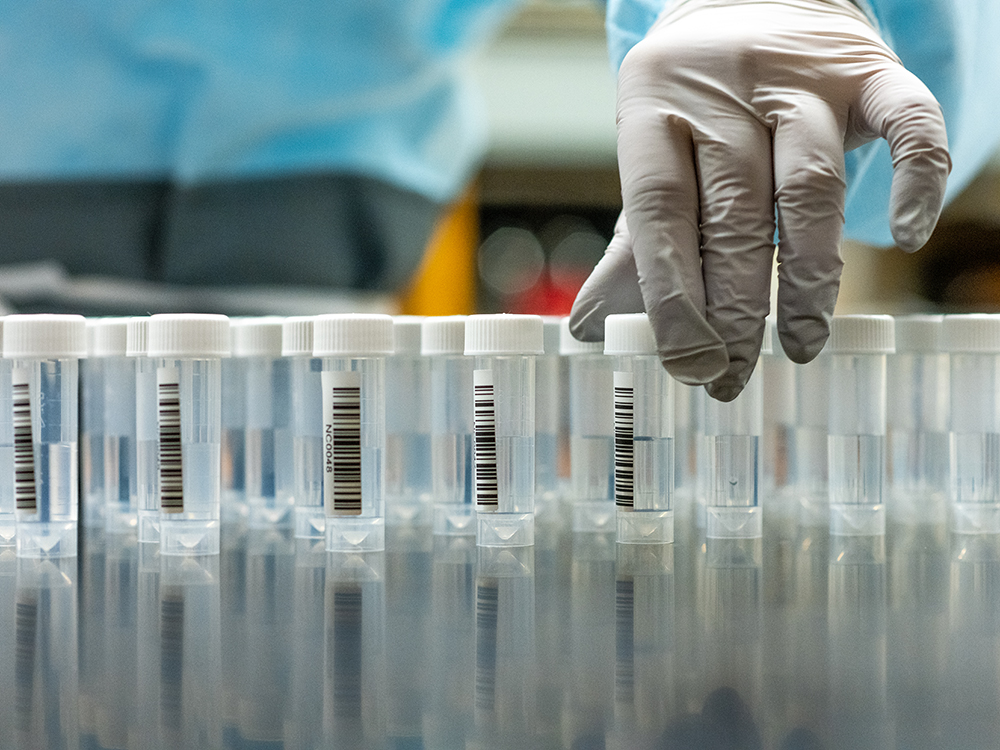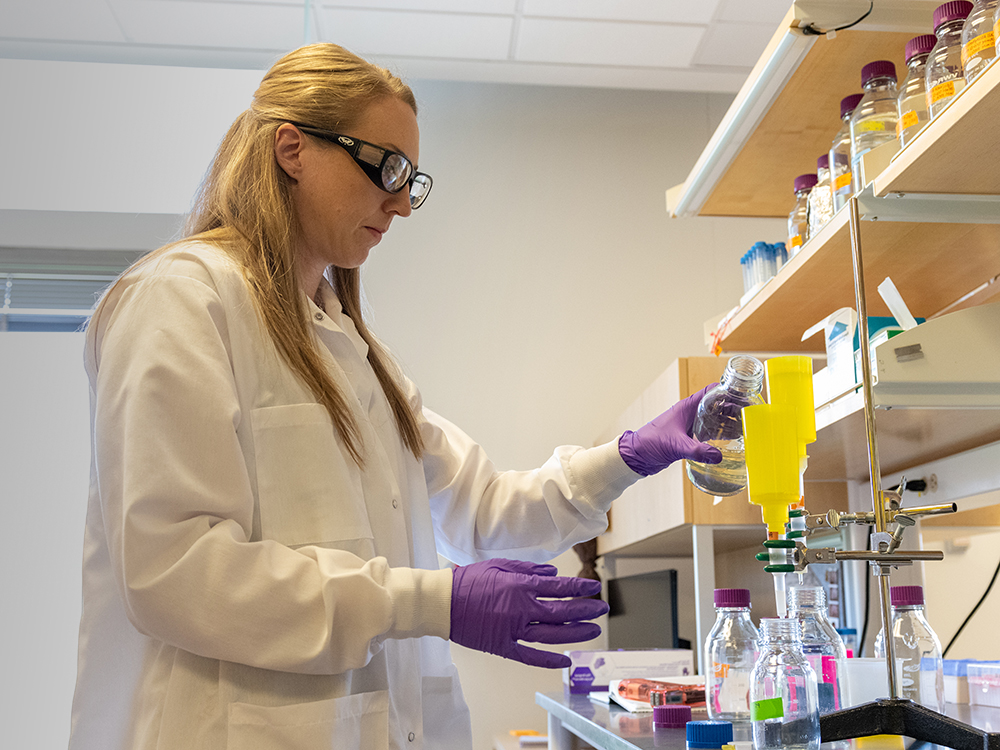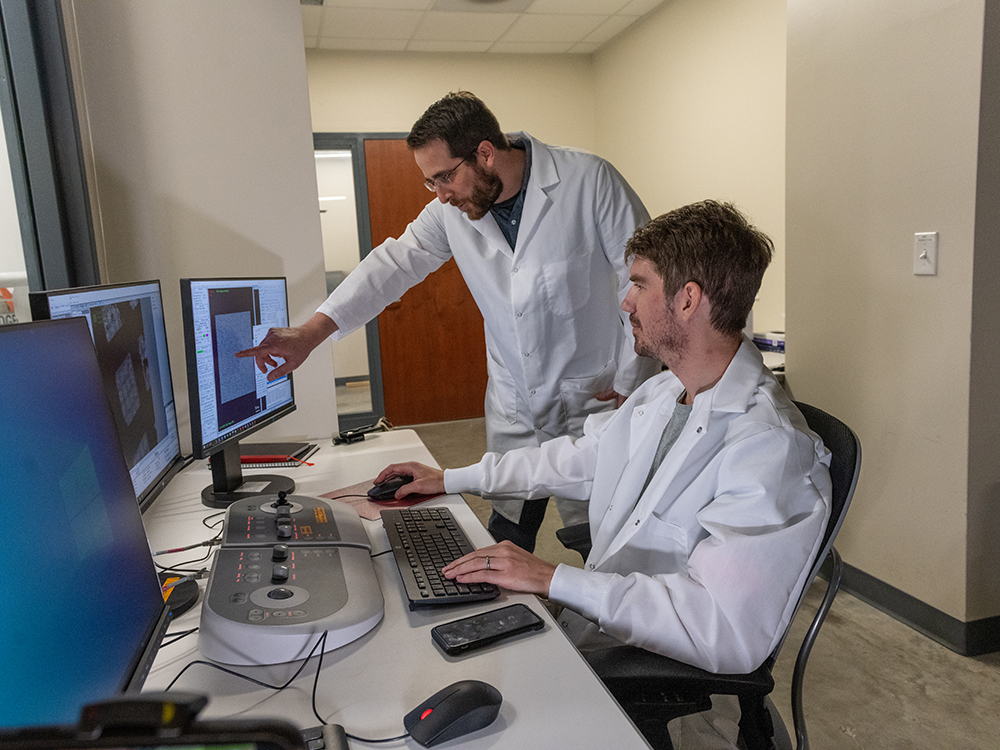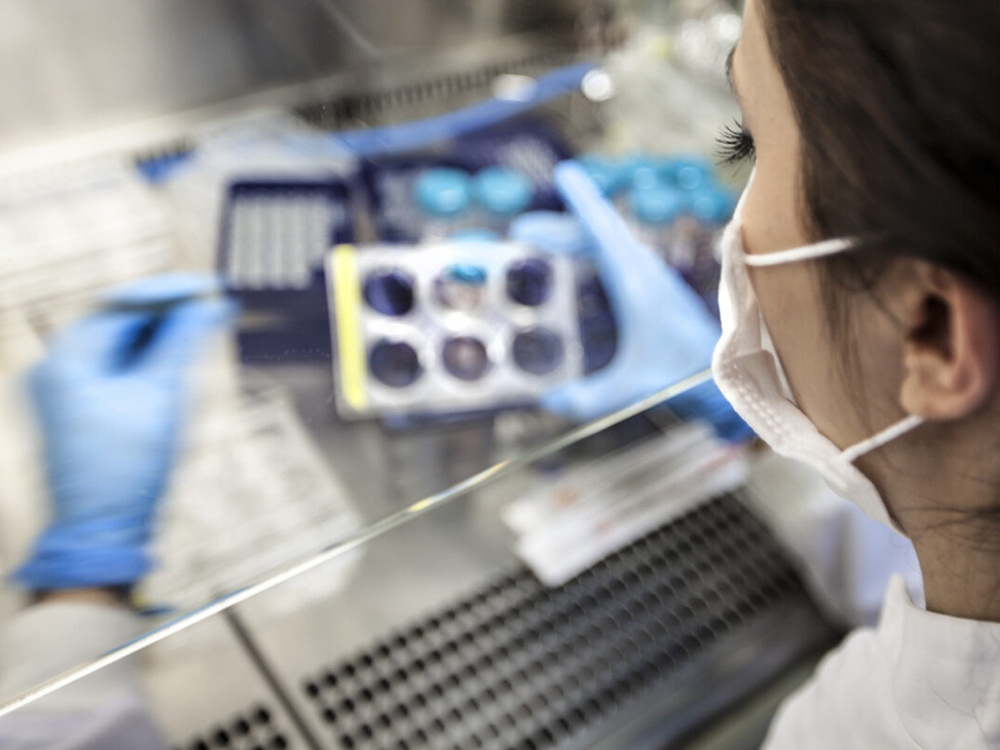Welcome to
Texas Biologics
Investing in disease prevention and treatment
Photo credit: NEXU

Programs
Through our innovative programs, Texas Biologics is investing in every phase of biologic development, from research support to clinical evaluation to commercialization.
Learn More

Current Projects
UT researchers are active in the development of new biologic therapies, including enzymes, antibodies, peptides and vaccines.
Learn More

Partner With Us
There are many ways to engage with Texas Biologics, from academic collaboration to technology licensing to philanthropic support.
Learn More
Home
2024 Pilot Grant and Science Studios Awardees Announced
Texas Biologics awarded the third round of Pilot Grants to accelerate biologic technology development. In partnership with Dell Med’s HTRI, we also awarded the second cohort of Science Studios grants.
Read more about the 2024 pilot grants
Read more about the 2024 science studio awards

100+
Patents since 2012
$750M
Raised via spinoff companies
12+
Drugs in commercial use or development
News
AI Trained on Evolution’s Playbook Develops Proteins That Spur Drug and Scientific Discovery
A new artificial intelligence model developed by researchers at The University of Texas at Austin paves the way for more effective and less toxic treatments and new preventive strategies in medicine.
Newly Discovered Antimicrobial Could Prevent or Treat Cholera
More than a million people each year die from infections by pathogens that are resistant to antimicrobials, and the problem is growing. Meanwhile, the discovery of new antimicrobials that can help stem the tide has not kept pace.
UT researchers say they found an antibody that protects against all COVID-19 variants
A team of researchers, led by folks at the University of Texas at Austin, believe they’ve found an antibody that protects against all COVID-19 variants. Antibodies attach themselves to the spike protein of a virus, preventing infection, the university explained.

